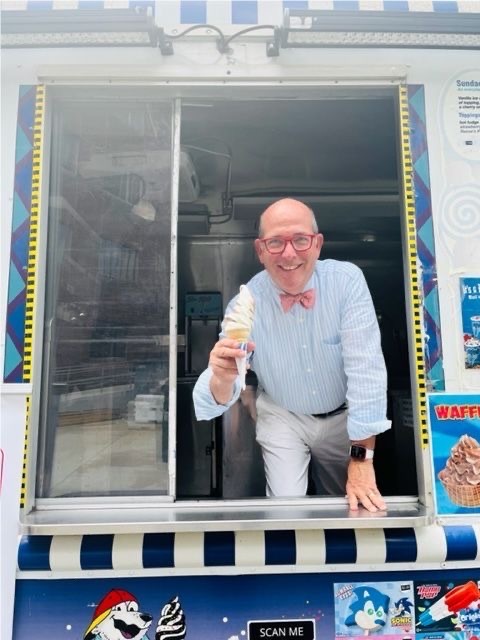How will you get an ice cream cone?
We conducted the experiments. We surveyed the population. We interviewed countless people. The secret to living longer, or at least better is – ice cream.
I know what you are thinking. That is ludicrous, not to mention a questionable nutrition choice.
Ice cream, specifically an ice cream cone, is an icon of the MIT AgeLab point of view on not so much living longer, but living better. Nearly 15 years ago, in front of an AARP Driver Safety audience gathered to discuss transportation, I posed the question about our shared transportation future in older age – “how will you get an ice cream cone?”
How does ice cream relate to transportation? The question is embedded in a wider narrative. Imagine for a moment your future older self. It is a hot summer night, you can hear the peepers, you turn off the television, you put your computer into sleep mode, and you are tired of your recent book purchase. Suddenly, you have a desire, a yearning even, for an ice cream cone. Make it a soft-serve swirl from the ice cream shop a few miles away. The thought makes you smile.
Here is the transportation question – do you have transportation to get your creamy delight? It’s too far to walk. If you don’t drive or live with someone who does, how will you get there? You haven’t biked in years. You are unlikely to bother a family member that lives miles away for an unplanned trip for something as ‘frivolous’ as an ice cream cone. Nor are you likely to have booked your moment of spontaneous desire with the local dial-a-ride system that might require reservations 24 hours to a week-plus in advance.
True mobility is not about the logistics of things you need, such as grocery shopping and medical appointments. It is about the safe, seamless, spontaneous capacity to go when you want, how you want, where you want. If you have to plan, book, ask, or invite for something as simple as a hot summer’s night soft serve, you don’t have adequate transportation in older age.
The ice cream cone in this story is more than a measure of mobility. The fact that wanting an ice cream cone is a small, frivolous, almost childlike desire is what makes it so meaningful. It is the small things that make us smile in our lives, in the hours, days, years lost between daily activities and events. Older age, typically described as retirement, is often framed as a period for travel, grandchildren, and executing big plans long delayed. Perhaps. But few of us travel, see grandchildren, walk beaches, play pickleball, or any of the other activities portrayed on retirement brochures every day.
Quality aging is actually about the small moments – the often-private moments – and things that make you smile. What are the little things that bring a smile to you? Reading the morning news, going for a walk, playing with a pet, checking on your garden? An ice cream cone is not necessarily something you plan retirement around, but knowing what will make you smile for nearly one-third of your adult life and having access to them is an important part of planning to live better, as we live longer.
So, what’s your pleasure: chocolate, vanilla, or swirl?

